Fri, January 20, 2023
The Grio
Many African nations are facing a kidnapping ransom crisis, including South Africa, which has seen a high rate of kidnapping cases in recent months. This comes as the Biden-Harris administration is finding ways to promote peace, stability and economic growth in Africa.
In December, President Joe Biden and Vice President Kamala Harris met with African presidents during the U.S.–Africa Leaders Summit to strengthen ties between the United States and the African continent in order to combat challenges plaguing the continent.
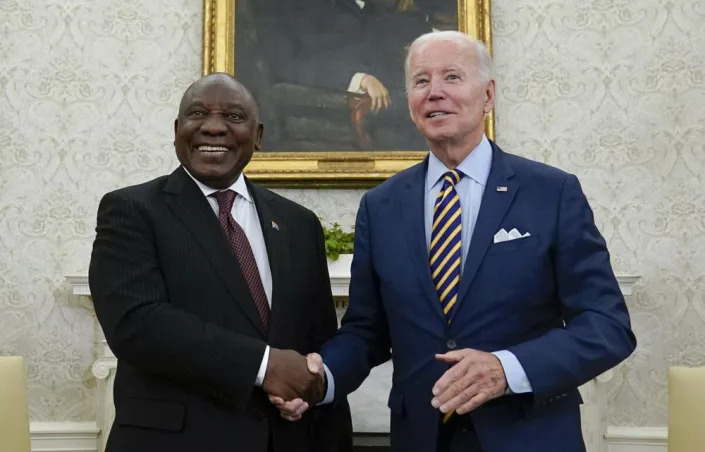
Last year, Biden and Harris met with embattled South African President Cyril Ramaphosa in Washington D.C. to strengthen ties between the two nations. Ramaphosa faces threats of impeachment following accusations that he was involved in a 2020 kidnapping and bribery scandal.
Aside from President Ramaphosa’s potential involvement in the kidnapping scandal, authorities reported that the country saw more than 4,000 kidnapping for ransom cases from July 2022 to September 2022, double the 2021 rate for the same time period, AFP reported.
“The figures for this year are the highest ever recorded in history,” anti-crime activist Yusuf Abramjee told theGrio. “[Assailants] do not hesitate to harm, torture or kill and they often target foreigners visiting or living in the country, South African nationals and citizens from either India, Pakistan, Bangladesh, China, Somalia or Ethiopia.”
Abramjee said organized crime gangs are to blame for the uptick in kidnapping cases, explaining, “They are highly skilled, they have spotters, they have people [assigned] to taking the victims, they have communicators and negotiators and are heavily armed.”

He warned that copycat gangs are also a threat to the South African community: “These gangs go for the so-called quick buck and quick cash. They’ll demand anything from 50,000 rands ($2,889.12 USD) to half a million rand ($28,891.24 USD).”
On Oct. 5, 2022, the U.S. Department of State issued a level 2 travel advisory for Americans to “exercise increased caution in South Africa due to crime and civil unrest” including “robbery, rape, carjacking, mugging and protests.”
During a press conference on Nov. 23, 2022, South African Minister of Police Bheki Cele told reporters that combating the spike in kidnappings is a top priority.
“We looked into the circumstances around when the kidnapping happened, and most of the circumstances were attributable to hijacking related…when a vehicle is being hijacked, the driver is also taken along and then maybe dumped somewhere at a later stage,” said Cele.
Abramjee told theGrio earlier this year the police set up an anti-kidnapping task team and that “they’ve made some good inroads.” He added, “a number of criminal syndicates and kingpins have been arrested, but a number of them are still on the prowl.”
According to South Africa’s News24, on Dec. 22, 2022, two brothers who migrated from Thailand to South Africa were kidnapped. The suspects then contacted the brothers’ family and demanded ransom for their safety. Two days after the abduction, one brother was rescued; however, the other brother was discovered to have died while in captivity.
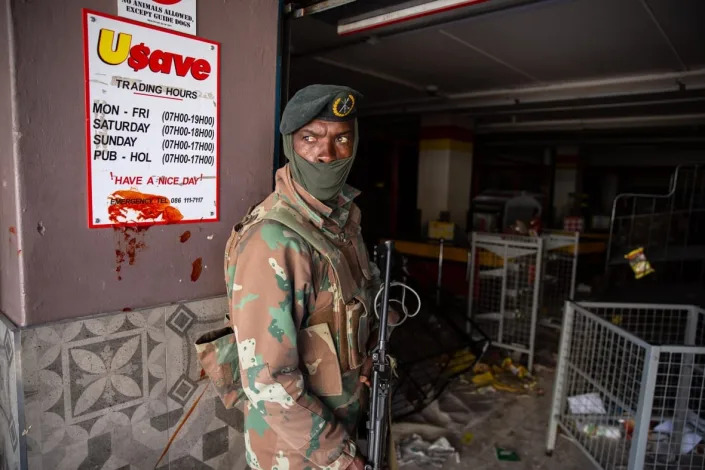
That same month, Kevin Soal, a well-known Midrand businessman was kidnapped and allegedly forced to make several monetary transactions from his account. He was then transported to a secluded area and shot execution-style, the Times Live reported.
In 2005, British actor Benedict Cumberbatch was kidnapped while filming “To the Ends of the Earth” in KwaZulu-Natal, a coastal city located south of Johannesburg. Cumberbatch told The Hollywood Reporter that while he and friends were driving back to the film’s set after spending a weekend diving, the front-right tire blew. When they tried to replace the tire, six armed men aggressively approached them.
“They were like: ‘Look down! Look down! Put your hands on your heads! Look at the floor!’ And they started frisking us and said: ‘Where’s your money? Where’re your drugs,” he informed The Hollywood Reporter.
Cumberbatch and his friends were then abducted and thrown into a vehicle. At some point during his capture, the assailants dropped him off in the middle of nowhere at night. Cumberbatch said he feared for his life and thought he could be raped or tortured. Unlike other kidnapping victims, the actor survived the ordeal.
According to the South African Police Service, for more than a decade kidnapping cases have steadily increased and Abramjee believes that is because South Africans are not speaking up.
“Members of the community also need to play their part. Very often they know who’s involved in these crimes and they need to blow the whistle on them,” he said.
He continued, “And we’ve also seen that with some of the kidnappings, when the ransom money is paid by the families, they decide not to pursue [justice] because they fear for their lives.”
Abramjee warned anyone who plans to visit or reside in South Africa to “always be on alert” and if they witness a kidnapping to “come forward.”
“Police have the skills and knowledge with the help of the private sector to bring these kidnappings to [an end],” he said.
TheGrio reached out to the White House about the matter but did not receive comment at the time of this publication.
In South Africa, ransom kidnappings are on the rise

28 Dec 2022
Al Jazeera
From an eight-year-old girl snatched on her way to school to a wealthy businessman who was abducted and murdered, South Africa is experiencing a surge in kidnappings for money.
During the festive season, police have been warning parents to be vigilant around beaches and shopping malls – potential hotspots for child abduction.
“They should take extra care of their children,” said Robert Netshiunda, a police spokesman in the southeastern province of KwaZulu-Natal.
“Children go missing and a crime of kidnapping is a reality,” he told the AFP news agency.
South Africa has long had a reputation for violent crime and is often described as one of the most dangerous countries in the world outside a war zone. But kidnapping for ransom or extortion “is comparatively new”, noted Jean-Pierre Smith, a Cape Town municipal security councillor.
The phenomenon started to rise in 2016 and is now experiencing explosive growth, according to the Global Initiative Against Transnational Organised Crime (GI-TOC), a non-profit organisation.
Police recorded more than 4,000 cases between July and September, a twofold increase in the same period last year.
The number of kidnappings today is “the highest ever in the history of South Africa,” anti-crime activist Yusuf Abramjee told AFP.
“It has become an established and lucrative criminal practice,” GI-TOC said in a report in September.
Last month, the country was stunned when eight-year-old Abirah Dekhta was kidnapped on her way to school near Cape Town by five gunmen in two cars.
Missing-person posters showed her wearing a pink dress and matching headscarf. She was freed during a spectacular police raid following a tip-off.
Dekhta had been held in a shack in the impoverished township of Khayelitsha, one of the largest in the country, guarded by seven men, police said. Her captors recently appeared in court, seeking bail.
Most cases of kidnapping in South Africa are a side-effect of carjacking, robberies and rapes but crime experts say an increasing number of victims are now being singled out directly.
In one of the most high-profile cases, four sons of a South African businessman, aged between six and 15 years, were kidnapped in a Hollywood-movie manner while on their way to school.
In such cases, ransom demands can run into the millions of rand (tens of thousands of dollars).
Kidnappers sometimes brazenly demand that the ransom be paid into “foreign bank accounts via Bitcoin or via money exchanges in Dubai,” said Abramjee.
But in other cases, the victim is simply killed after his bank account has been emptied.
One such death was Kevin Soal, a businessman in his late 60s with a passion for horse racing. His luxury car was found abandoned in a township on the outskirts of Pretoria days later.
Soal’s body was discovered afterwards in a nearby area with gun wounds police investigators reportedly say were consistent with targeted killing. Large amounts of money had been withdrawn from his account, said a police source.
Police and private detectives are investigating the case.
On November 23, at a press conference where he unveiled the country’s dismal crime figures for 2022, Police Minister Bheki Cele singled out kidnapping as a priority for the forces.
Sporting a fedora hat almost echoing the fashion style of 1920s US crimebuster Eliot Ness, Cele ordered his force to “deal decisively with these most feared crimes”.
Analysts say kidnappings have been fuelled by locals working with foreign crime groups suspected to be operating from Mozambique and Pakistan and other countries.
Indian business people, Pakistani, Somali and Ethiopians are among those increasingly becoming victims of such campaigns, according to Abramjee.
A Somali businessman was recently snatched from a Johannesburg hotel lobby, he said.
Muslim families of Indian origin, who are rumoured to hold large funds abroad, are especially at risk, said a police source.
Police last year set up a special unit and officials recently said they were “closing in on several syndicates” responsible for kidnapping for ransom cases.
SA kidnappings surge to over 1 000 a month in 2022
Mail & Guardian
10 Oct 2022
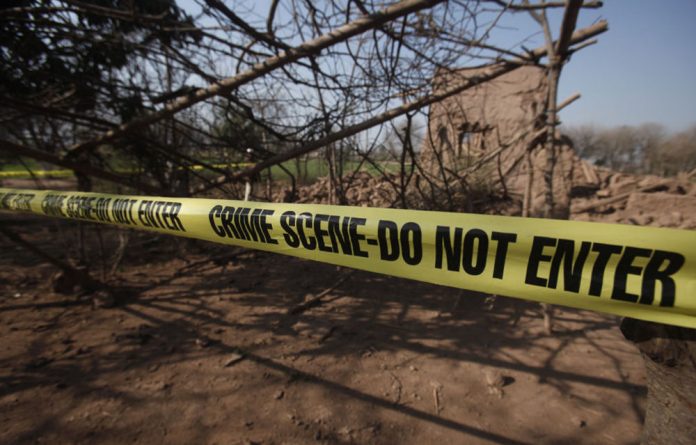
The number of kidnappings in South Africa has been increasing sharply over the past year. In the first six months of 2022 an average of 1 143 kidnappings a month were reported to the police, double the monthly average in 2021 (700).
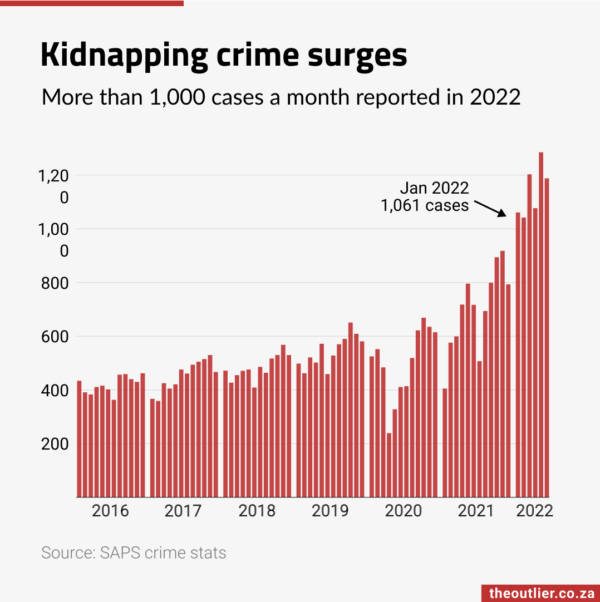
The increase in kidnapping for ransom and extortion cases “suggests that it has become an established and lucrative criminal practice in South Africa”, said the Global Initiative Against Transnational Organised Crime (GI-TOC) in a Strategic Organised Crime Risk Assessment report for South Africa published in September 2022.
One province is driving this increase – Gauteng. The number of kidnappings reported in the first six months of 2022 are already 60% higher than the number reported for the whole of 2019.
Between January and June this year, an average of 579 kidnappings a month were reported in Gauteng, up from 277 in 2021 and 182 in 2019.
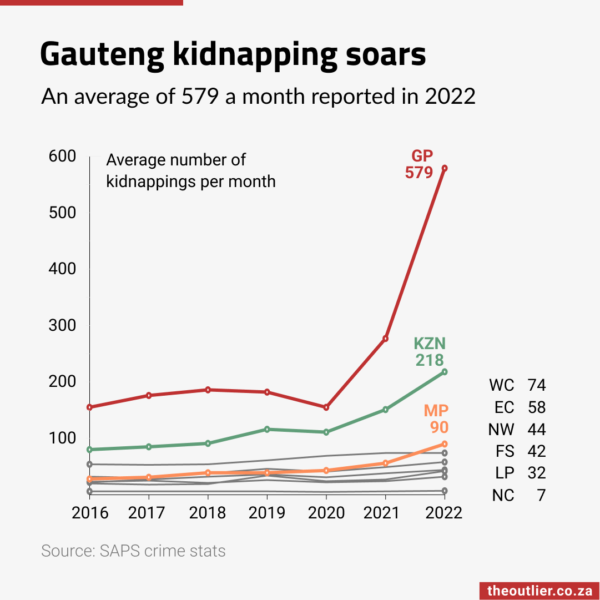
KwaZulu-Natal has the second highest number of kidnappings, with an average of 218 kidnappings a month for the first half of 2022.
Mpumalanga has shown the second-highest increase in kidnappings, after Gauteng. Cases in the first six months of 2022 (538) are already 15% higher than the total for 2019 (466). Mpumalanga police stations have reported an average of 90 kidnappings a month for 2022.
Police stations with the most kidnappings
This provincial pattern is reflected in the 20 police stations that reported the most kidnappings in the first six months of 2022; three are in KwaZulu-Natal (Inanda, Umlazi and Pinetown), one is in Mpumalanga (Delmas) and the rest are in Gauteng.
The two stations that reported the highest number of kidnappings between January and June this year are Vosloorus (114) and Kempton Park (101), both in Gauteng.
The precincts with the highest number of reported cases in Gauteng tend to be clustered.
Jhb Central, Jeppe, Booysens, Moffatview and Mondeor precincts are grouped in the centre of the city edging south.
Vosloorus and Heidelberg are very close to each other on the N3 highway to Durban in the south-east of Johannesburg.
Randfontein, Westonaria and Orange Farms are grouped together to the south west. Orange Farms, Evaton and Vanderbijlpark precincts are close to each other near the N1 freeway.
Further afield, there are two precincts in the top 20 to the north of Pretoria, Mabopane and Rietgat, and Delmas, to the east, which is in Mpumalanga province, on the border of Gauteng.
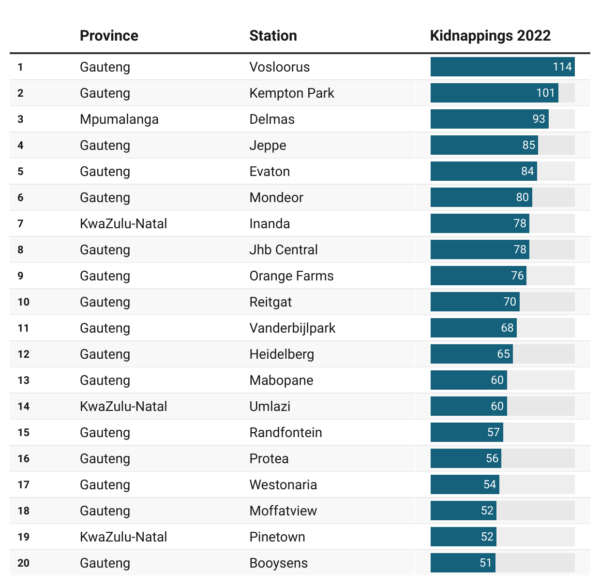
https://theoutlier.co.za/story-assets/kidnapping-map-2022-10/
Not just rich targets
These precincts are not in the rich suburbs of Johannesburg and Pretoria. In fact, many of them are in low-income areas.
“Many cases we are looking at involve average earners with no visible source of disposable money,” said private investigator Kyle Condon, owner of D & K Management Consultants, which specialises in helping international and South African companies manage crime risk and fraud.
Wealthy people have the resources to increase their personal security. Lower-level earners are easier targets and they don’t draw as much media attention or dedicated police response, he said.
“There is a definite increase in lower-income cases, and equally in the poorest of poor areas,” said Condon. “These victims often scrape together the ‘smaller’ ransom amounts and, in many cases, don’t report the crime at all.”
Small-scale to mega syndicates
GI-TOC’s organised crime report noted that groups involved in kidnapping range from “small-scale syndicates targeting people in vulnerable communities, seeking quick money in relatively minor amounts, to professional ‘mega-syndicates’ carefully targeting high-net-worth individuals, sometimes holding victims for months at a time.”
Ransom kidnappings make up only 5% of South Africa’s kidnapping cases, according to the South African Police Service. Most kidnappings are because of robberies and hijackings.
For example, some victims are held for only a few hours so they can withdraw cash from an ATM to pay for their own release, said Lizette Lancaster, a senior researcher and project manager for the Institute of Security Studies – a non-profit focusing on training and research in crime prevention, criminal justice and conflict.
Or victims are held hostage until they have transferred money electronically via e-Wallet, said GI-TOC in its organised crime report.
Ransoms can be as low as R1 000. For example, when opportunistic gangs target people in informal settlements or peri-urban areas whose families are believed to have access to some money, they demand amounts that are “large for a person living in these environments, but not so large that they cannot pay”, said the report.
On the other end of the scale, transnational crime syndicates involved in kidnapping can demand ransoms of millions of rands. These kidnappings are well organised and victims are extensively profiled, said GI_TOC.
Recent high-level kidnappings, often of high-profile foreign businesspeople, may be connected to a criminal organisation from Mozambique, said the report.
Syndicates from Pakistan and Bangladesh also operate in South Africa and “tend to target nationals from their respective countries who are resident in South Africa”.
Local copycat groups are mimicking these syndicates, but targeting South African nationals, the report said.
The covid-19 lockdowns have brought some new players to the kidnapping game, according to the GI-TOC. Cash-in-transit gangs, for example, looking for other revenue streams, started to pursue kidnapping because it’s “comparatively low-risk given that small-scale kidnappings are seldom reported.”
South Africa kidnapping: ‘I survived but part of me died that day’
BBC NEWS
10 May 2022
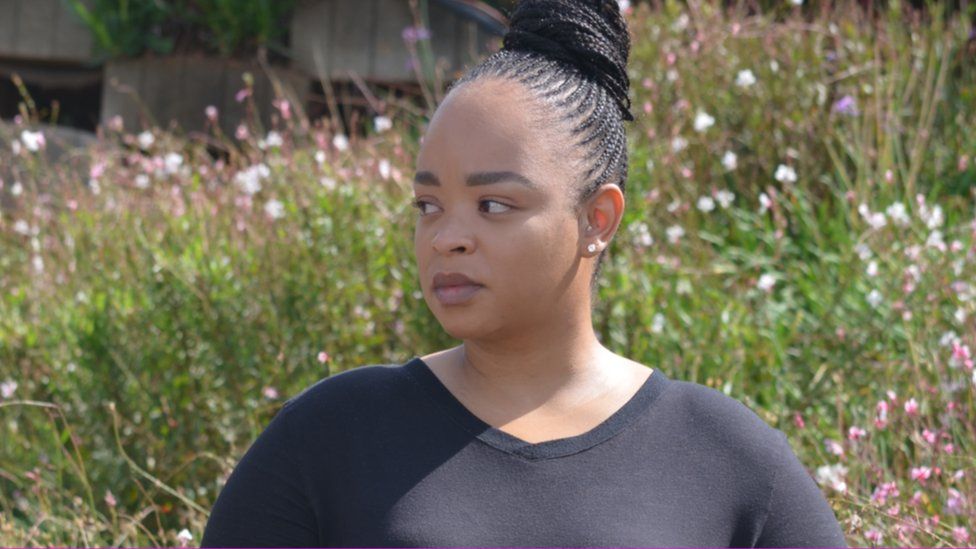
After a surge in the number of abductions in recent years, South Africa has one of the highest rates of kidnapping in the world, as Mpho Lakaje reports from Johannesburg.
Lesego Tau did not panic at first when a stranger opened the back door of her grey Mercedes C-Class and climbed in.
She had parked outside a shopping mall in Johannesburg and was focused on texting a friend before going in to grab a few items for a get-together that evening.
“In my rear view mirror, I was looking and still thinking: ‘This person is going to be so embarrassed when they realise they are in the wrong car’,” she told the BBC, recounting the events of last June.
But this was not an innocent mistake.
“Our gazes locked and I realised what was happening.”
This was a kidnapping.
Six months earlier, businessman Yasin Bhiku was grabbed in the driveway of his home, near Johannesburg, just after returning from the mosque.
CCTV footage that was widely seen on social media shows Mr Bhiku dressed in a blue T-shirt and black trousers calmly chatting to a friend.
Two men can be seen getting out of the car parked opposite. At first they stroll towards him, but then rush at him after Mr Bhiku realises what is going on and tries to flee.
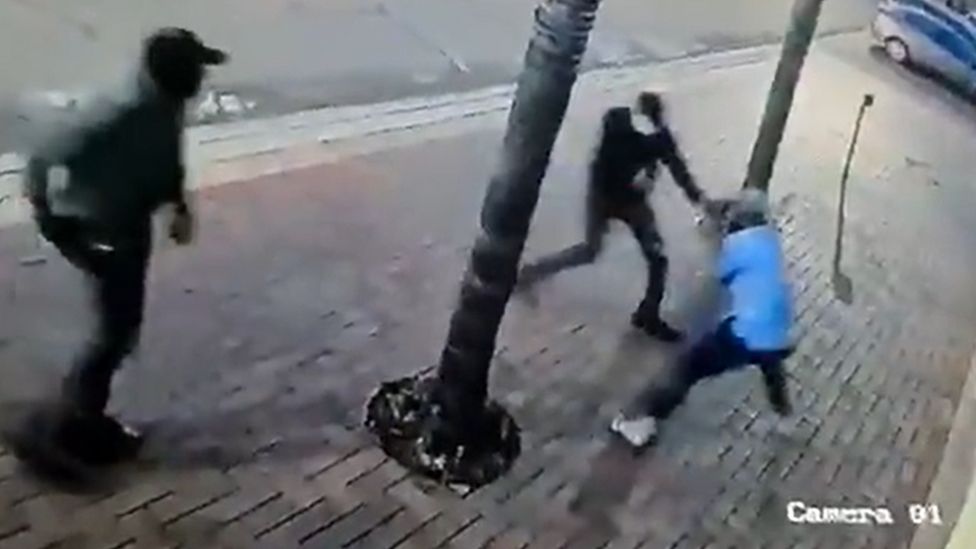
He was overpowered and forced into the vehicle at gunpoint. The businessman was later found unharmed and rescued by the police.
Ms Tau, who runs her own cleaning company in Pretoria, also tried to flee once she had figured out that she was about to be abducted.
She said she tried opening the door of her car, but another man, dressed as a parking attendant in a hi-vis jacket, blocked the door.
The man in the back seat showed that he had a gun and ordered Ms Tau to drive out of the shopping complex.
Along the way, she was told to stop and someone else jumped into her car.
Four-hour ordeal
Once in the countryside, about 15km (nine miles) into the terrifying journey, the kidnappers ordered Ms Tau to stop.
A red car then arrived at the scene and someone got out, took her bank cards and forced her to reveal her security codes.
“The other people from the car… started going through all my different cards. They were withdrawing [money].”
At the same time, her captors were repeatedly hitting her on the head with the gun, ordering her to increase her withdrawal limit.
The ordeal went on for over four hours.
At one point she heard someone on the other end of a phone call say: “Just finish her off. We are done.”
“I made peace that they were going to kill me, but I thought, I need to fight. I have to fight. If they are going to kill me, I might as well fight,” Ms Tau said.
She fought her way out of the car, but the kidnappers grabbed her and started hitting and scratching her. She got away and ran across the road into the oncoming traffic.
This story and that of Mr Bhiku are not isolated.
In February, Police Minister Bheki Cele revealed that 2,605 kidnapping cases had been reported to the authorities in the last three months of 2021.
In the decade from 2010, kidnapping more than doubled in South Africa and there are now 10 kidnappings per 100,000 people, according to the South African think-tank the Institute for Security Studies. This is one of the highest rates in the world.
In 2018, Mr Cele promised to make dealing with kidnapping a priority.

Victims have been kept against their will either for a ransom, to have their bank accounts cleaned out or be sexually assaulted.
Some did not make it out alive, though it is not clear how frequent this outcome is.
In an attempt to deal with these kind of crimes, the police launched a kidnapping task team, combining intelligence gathering with tactical response.
Crime syndicates target South Africa
One thing that has been established is that kidnappers tend to work in teams and the abductions follow a pattern with each gang member having a set role, police spokesperson Col Athlenda Mathe told the BBC.
“The spotters are those that would follow the target. The pickers are those who move in to kidnap the victim.”
The kidnappers often drive high-performance vehicles and are usually heavily armed.
“Then we have the guards that would take over and keep the victim… until a ransom is paid.”
But in the background, there is a mastermind who does thorough research and pulls the strings.
“The kingpin would be someone who lives a high-end life and wouldn’t do the dirty job,” Col Mathe says.
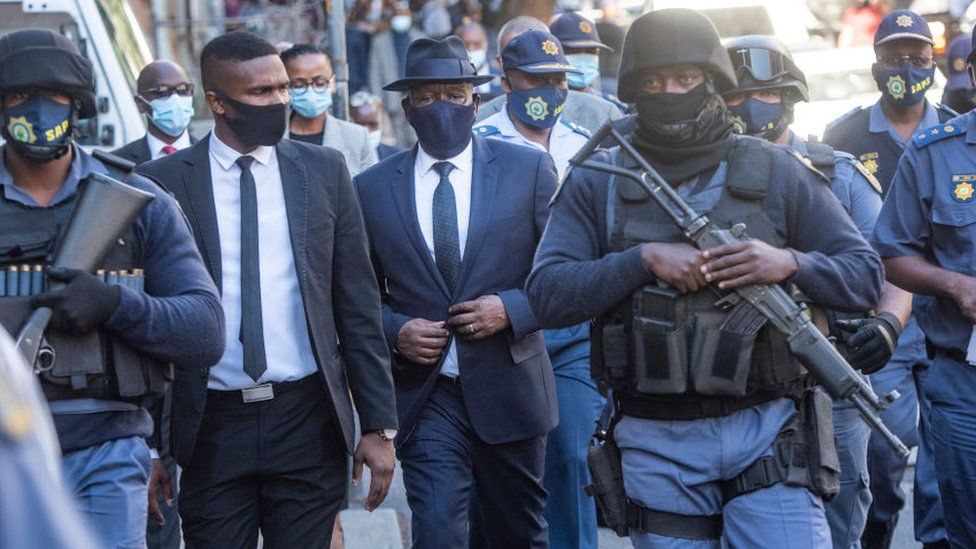
These criminal syndicates have tentacles in countries like neighbouring Mozambique and as far afield as Pakistan.
They tend to mostly target wealthy business people with the means to pay a ransom, but some victims have been from low-income areas and children are not spared.
Private hostage negotiator Gérard Labuschagne says there has been an increase in very high-value cases. Ransoms can be set at up to $3m (£2.3m)
“Organised groups operating in Mozambique and other parts of Africa have now decided, for whatever reason, that South Africa is ripe for this type of crime and they’ve been committing it very successfully,” Mr Labuschagne says.
Some social commentators believe general lawlessness has made South Africa attractive to organised criminals from around the world.
In the face of public anger, the police acknowledge that more work needs to be done but Col Mathe says they have made progress.
“Since the identification of these syndicates, we have arrested 115 suspects, consisting of Pakistanis, Mozambicans as well as South Africans.”
One of the suspects is 43-year-old Faizel Charloos, who was taken into custody in March.
He is believed to be the mastermind behind a spate of recent kidnappings.
During police raids in several Johannesburg properties linked to him, drugs, cash and a high-powered vehicle were recovered.
Mr Charloos recently appeared in court, along with several others, on kidnapping charges. He has made no comment.
It emerged that he has dual citizenship in South Africa and Mozambique.
‘Police don’t rescue victims’
In a separate case in April, police successfully rescued a four-year-old girl who was snatched at a school in Johannesburg, by a woman pretending to be her childminder.
Her kidnappers had earlier demanded thousands of dollars for her safe return.
But four people were arrested when they arrived outside a shopping centre to collect the ransom.
Despite such breakthroughs, Mr Labuschagne is not convinced the police are winning.
“We have had one or two arrests. But in the overwhelming majority of these cases, the police don’t rescue the kidnapped victims from where they’ve been kept. They are released after a payment.”
Ms Tau was lucky that she managed to get away, but her kidnappers took $1,400 (£1,100).
The ordeal has damaged her psychologically and left her family distressed.
“My father is not a man who cries, but he got teary. He kept on feeling like he could have protected me.
“There’s still a part of me that actually died on that day.”
